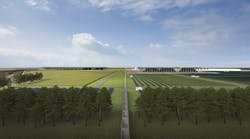By OGJ editors
HOUSTON, May 14 -- The National Petrochemical & Refineries Association has urged New York state officials to reconsider and postpone a scheduled ban on methyl tertiary butyl ether in gasoline starting next year.
In testimony Tuesday before the New York State's Environmental Conservation Committee, NPRA Director of Technical Advocacy Charles Drevna discussed the dual goals of increased energy supply and continued environmental progress.
"With these two concepts as a backdrop, NPRA fears that imposition of a unilateral ban of MTBE by the state of New York on Jan.1, 2004, will produce the opposite of the desired and necessary goals," Drevna said (OGJ, Jan. 20, 2003, p. 30).
If enacted, the New York ban of MTBE will leave no other option than using ethanol to meet the 2% reformulated gasoline requirement of the Federal Clean Air Act. The situation is even more complicated because western and Upstate New York currently utilize "conventional" gasoline with MTBE found in lower volumes than is currently required in reformulated gasoline, he said.
"If New York imposes the MTBE ban as currently planned, this will require four separate grades of gasoline," Drevna said. That situation could "transform the New York gasoline market and infrastructure into an isolated island, with no access to the supply and distribution chain of regional or neighboring states, or importers," he said.
He dismissed any comparison with California where an MTBE ban is to take effect in 2004. Unlike New York, California debated the elimination of MTBE from the gasoline supply for nearly 5 years before its imposition.
Even though California has 16 refineries, its gasoline remains the most costly to produce nationwide and even minor disruptions can lead to price volatility. In comparison, New York has no refineries.
Drevna said New York could find itself basing its total gasoline supply needs on a handful of regional, domestic producers unless the ban is postponed.
